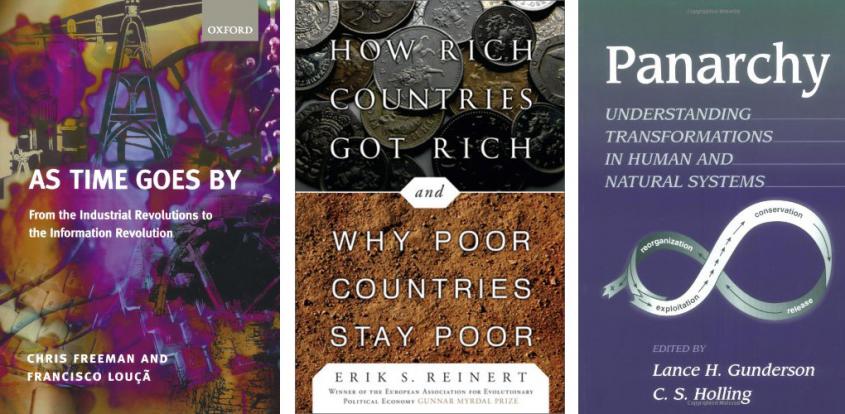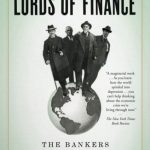Joseph Schumpeter’s influence in modern economic thought cannot be overestimated and it turns up in some surprising and interesting places.
 Hans Christoph Binswanger, Money and Magic: A Critique of the Modern Economy in the Light of Goethe’s Faust A senior professor of finance, Binswanger makes an important contribution to economic philosophy in this brilliant and popular interpretation of Goethe’s life’s work.
Hans Christoph Binswanger, Money and Magic: A Critique of the Modern Economy in the Light of Goethe’s Faust A senior professor of finance, Binswanger makes an important contribution to economic philosophy in this brilliant and popular interpretation of Goethe’s life’s work.
Fernand Braudel, The Perspective of the World. This is Volume III of Braudel’s magnificent trilogy, Civilization and Capitalism, 15th–18th Century. Markets and market economy were something very different from modern capitalism, as Braudel explores with a combination of marvelous detail and panoramic sweep. Many would vote Braudel the twentieth century’s greatest historian and Schumpeter the century’s greatest economist.
At first approach, Joseph Schumpeter’s own prose style is meandering and overfull with illustrations, asides, and historical qualifications. He is also sensitive to the aliveness of economic life and his new insights often emerge from the detail. His big three books are The Theory of Economic Development (1912; English edition, 1934), with its theory of innovation, capital creation, and development through cycles; Business Cycles (1939), with its historical vision of economic long waves; and his wartime essay Capitalism, Socialism, and Democracy. Each book alludes only lightly to the theories developed in the others; when they are read together the whole vista of modern economic history opens up.
 Schumpeter’s work inspires many others. One recent and important work is Chris Freeman and Francisco Louça, As Time Goes By: From the Industrial Revolutions to the Information Revolution, which focuses on waves of technological innovation, boom, and bust. Another, also highly readable, is Erik Reinert’s book, How Rich Countries Got Rich, And Why Poor Countries Stay Poor, which revisits the question of economic development by reference to an alternative canon of continental European thought, exemplified by Schumpeter. Schumpeter’s inspiration crops up also in some less expected places, including the cyclic vision developed by the ecologist C. S. Holling in Panarchy: Understanding Transformations in Human and Natural Systems.
Schumpeter’s work inspires many others. One recent and important work is Chris Freeman and Francisco Louça, As Time Goes By: From the Industrial Revolutions to the Information Revolution, which focuses on waves of technological innovation, boom, and bust. Another, also highly readable, is Erik Reinert’s book, How Rich Countries Got Rich, And Why Poor Countries Stay Poor, which revisits the question of economic development by reference to an alternative canon of continental European thought, exemplified by Schumpeter. Schumpeter’s inspiration crops up also in some less expected places, including the cyclic vision developed by the ecologist C. S. Holling in Panarchy: Understanding Transformations in Human and Natural Systems.



